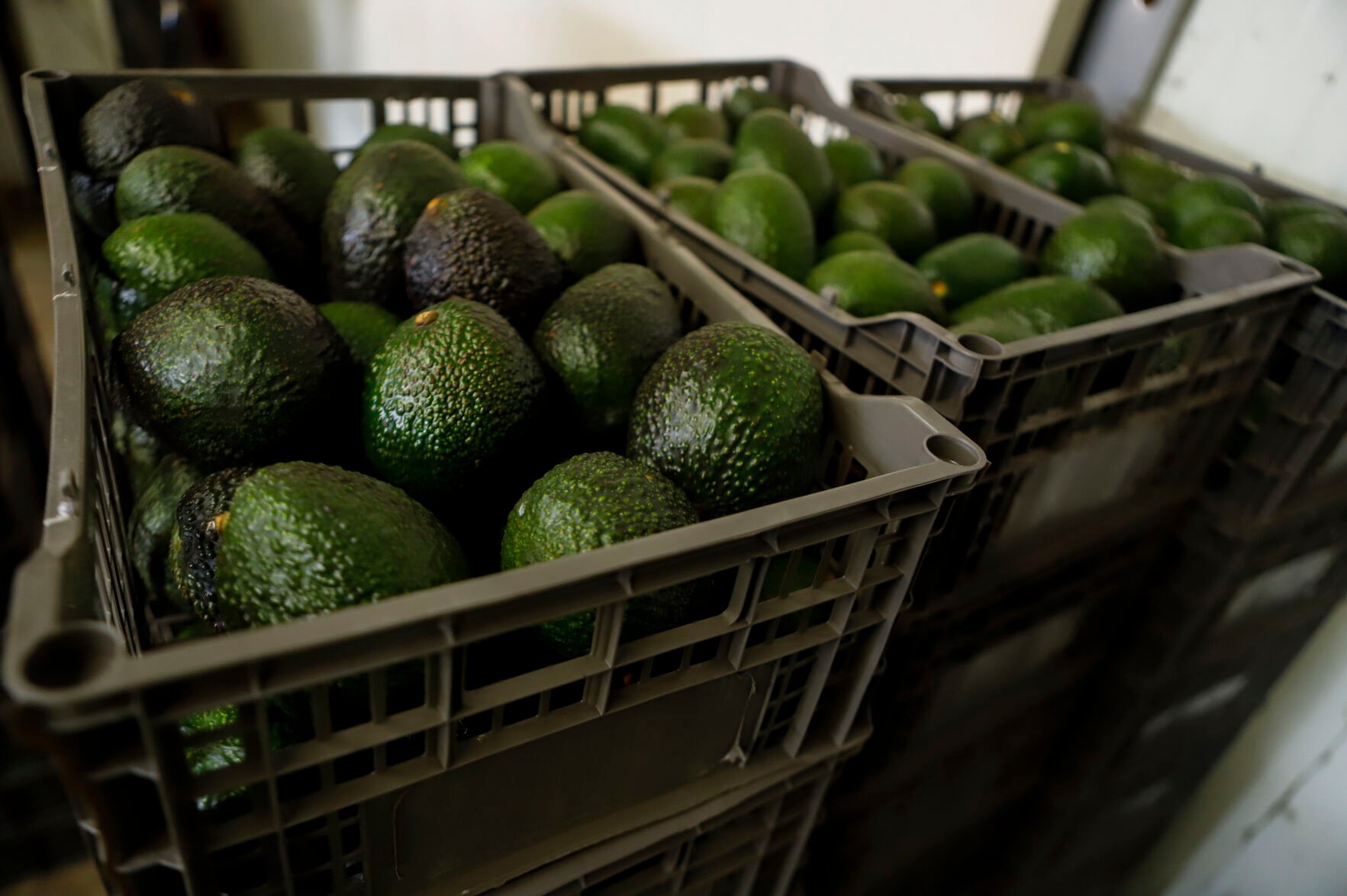US ban on Mexican avocados leads to them ‘being sold like gold’
Avocados, known in some Mexican regions as “oro verde,” or green gold, may soon become a fruit so scarce in the United States that it could be worth its weight in gold, if you can find it at all.
After the U.S. recently put a halt on the import of Mexican avocados because a U.S. official was threatened by organized crime in Michoacán — the biggest avocado-producing state in Mexico — thousands of tons of the fruit have stopped entering the country.
Merchants are already preparing for this shortage and for a price increase, which will directly impact consumers and restaurants, some of which are already thinking about removing guacamole from their menus.
Alfredo Duarte, general director at Taxco Produce, a fruit and vegetable distribution company that supplies fresh food to more than 1,000 restaurants in North Texas, said he was concerned about the situation.
“I still have inventory for the next two weeks,” Duarte said. “I would hope that this is resolved in a few days because avocado is a huge business, it represents too much money, so the two governments must do their part to resolve this.”
In 2020, the U.S. imported more than 2.1 billion pounds of avocado from Mexico (just over 1 million tons), according to the Mexican data system Sistema de Información Agroalimentaria y Pesquera de México. It is estimated that each person in the country consumes about 8 pounds of avocado every year, according to Avocados from Mexico, based in Irving, Texas.

AP Photo/Armando Solis
Crates of avocados wait to be processed at a packing plant in Uruapan, Mexico.
Although it is possible to get avocados from California, Peru or Colombia, the amount traded and imported is very small compared to what comes from Mexico. Some merchants even refuse to sell avocado not coming from Mexico because they say it is of lower quality.
Lucy Briones, a spokesperson for ITAMP Food Distributors, which sells fresh produce to restaurants and taquerías in Dallas, said that the company is waiting before investing in a more expensive product because it could represent great losses for the company.
“The boxes that we used to buy for $30 are now being sold to us for $70, and the larger ones are already selling for more than $100, we would have to sell for at least $120,” said Briones. “They’re the last avocados that managed to enter the country before the border closed, and right now they are already being sold like gold.”
The company has already taken some steps, such as not selling avocados to noncustomers or only partially fulfilling orders so more people have access to the last of their inventory, which they expect to last a week.
The distributor will send a letter to its more than 30 clients to explain the situation.
“We are not going to buy avocados from somewhere else, because they don’t have the same quality as Mexican avocados, and our customers don’t deserve a bad product,” Briones said.
An avocado has an average life of four weeks after it is harvested in Mexico, Briones said. By the time it crosses the border and reaches its end customers, the fruit lasts about two more weeks. If the situation is not resolved, there will be a shortage at the end of February.
Although guacamole is one of the most popular dishes at restaurants and cantinas, some restaurateurs are ready to remove it from their menus if it becomes impossible to acquire avocados or if prices rise exponentially.
“If the cost of avocados becomes absurd, it’s best to take it off the menu,” said Pedro Rojas, owner of Pepe’s & Mito’s, a restaurant in the Deep Ellum neighborhood of Dallas. “We can’t afford it if it’s too expensive because if we raise the price, customers won’t order it.”
